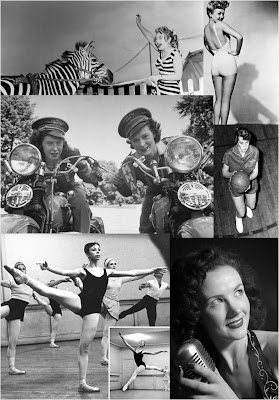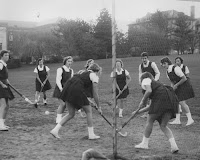
To do something well you have to like it. “Do what you love.” But it’s not enough just to tell people that. Doing what you love can be complicated.
The very idea is foreign to what most of us learn as children. When I was small, it seemed as if work and fun were opposites by definition. Life was split into two parts: some of the time adults were making you do things, and that was called work; the rest of the time you could do what you wanted, and that was called play. Occasionally the things adults made you do were fun, just as, occasionally, playing wasn’t — if you fell and hurt yourself, for example. But work was pretty much defined as not-fun.
S
 chool, it was implied, was tedious because it was preparation for grown-up work. The world then was divided into two groups, grown-ups and children. Grown-ups, like some kind of cursed race, had to work. Kids didn’t, but they did have to go to school, which was a diluted version of work meant to prepare us for the real thing. Much as we disliked school, the grown-ups all agreed that grown-up work was worse and that we had it easy.
chool, it was implied, was tedious because it was preparation for grown-up work. The world then was divided into two groups, grown-ups and children. Grown-ups, like some kind of cursed race, had to work. Kids didn’t, but they did have to go to school, which was a diluted version of work meant to prepare us for the real thing. Much as we disliked school, the grown-ups all agreed that grown-up work was worse and that we had it easy. Teachers in particular all seemed to believe implicitly that work was not fun. This is not surprising, since I’m sure work wasn’t fun for most of them. Why did we have to memorise King Henry’s six wives, instead of playing hockey? For the same reason they had to watch over a group of children instead of lying on a beach. You couldn’t just do what you wanted.
fun. This is not surprising, since I’m sure work wasn’t fun for most of them. Why did we have to memorise King Henry’s six wives, instead of playing hockey? For the same reason they had to watch over a group of children instead of lying on a beach. You couldn’t just do what you wanted.
 fun. This is not surprising, since I’m sure work wasn’t fun for most of them. Why did we have to memorise King Henry’s six wives, instead of playing hockey? For the same reason they had to watch over a group of children instead of lying on a beach. You couldn’t just do what you wanted.
fun. This is not surprising, since I’m sure work wasn’t fun for most of them. Why did we have to memorise King Henry’s six wives, instead of playing hockey? For the same reason they had to watch over a group of children instead of lying on a beach. You couldn’t just do what you wanted.I’m not saying we should just let children do what they want. They may have to be made to focus on certain things. But if we make them work on uninspiring tasks, it might be wise to tell them that tediousness is not the defining quality of work, and indeed that the reason they have to work on the boring stuff now is so they can work on more interesting and exciting things later in life.
When I was 9 or 10, my father told me I could be whatever I wanted when I grew up, as long as I enjoyed it. I remember that precisely because it seemed so anomalous. It was like being told to use dry water. Whatever I thought he meant, I didn't think he meant work could literally be fun — fun like playing. It took me years to grasp that.
By senior school, the prospect of an actual job was on the horizon. Adults would sometimes come to speak to us about their work, or we would go to see them at work. It was always understood that they enjoyed what they did.
The main rea son they all acted as if they enjoyed their work was presumably the upper-middle class convention that you’re supposed to. It would not merely be bad for your career to say that you despised your job, it would also be a grave social faux-pas.
son they all acted as if they enjoyed their work was presumably the upper-middle class convention that you’re supposed to. It would not merely be bad for your career to say that you despised your job, it would also be a grave social faux-pas.
 son they all acted as if they enjoyed their work was presumably the upper-middle class convention that you’re supposed to. It would not merely be bad for your career to say that you despised your job, it would also be a grave social faux-pas.
son they all acted as if they enjoyed their work was presumably the upper-middle class convention that you’re supposed to. It would not merely be bad for your career to say that you despised your job, it would also be a grave social faux-pas. Why is it conventional to pretend to like what you do? The first sentence of this posting explains that. If you have to like something to do it well, then the most successful people will all like what they do.
That’s where the upper-middle class tradition kicks in. Just as houses all over England are full of chairs that are, unbeknown to their owners, imitations of chairs designed more than 100 years previously for European royalty, conventional attitudes about work are, without the owners even knowing it, imitations of the attitudes of people who have done great things.
What a recipe for alienation. By the time they are old enough to think about what they would like to do, most children have been thoroughly misled about the idea of loving one’s work. School has trained them to regard work as an unpleasant duty. Having a job is said to be even more onerous than homework. And yet all adults claim to like what they do. You can’t blame children for thinking “I am not like these people; I am not suited to this world.”
Actually they’ve been told three lies: the stuff they have been taught to regard as work in school is not real work; grown-up work is not (necessarily) worse than schoolwork; and many of the adults around them are lying when they say they like what they do.
The most dangerous liars can be the child’s own parents. If you take a boring job to give your family a high standard of living, as so many people do, you risk infecting your kids with the idea that work is boring. Maybe it would be better for children in this case if parents were not so unselfish. A parent who sets an example of loving his or her work might be of more use to the kids than an over-priced house.
It was not until further education that the idea of work finally broke free from the idea of making a living. Then the important question became not how to make money. The definition of work was transformed into how to make an original contribution to the world, and in the process not to starve. But after so many years my idea of work still includes a large component of pain. Work still seems to require discipline, because only hard problems yield big results, and hard problems literally cannot be fun. One has to force oneself to work on them.
How much are you supposed to like what you do? Unless you know that, you don’t know when to stop searching. And if, like most people, you underestimate it, you’ll tend to stop searching too early. You’ll either end up doing something chosen for you by your parents or the desire to make money and prestige — or end up wallowing in sheer inertia.




No comments:
Post a Comment